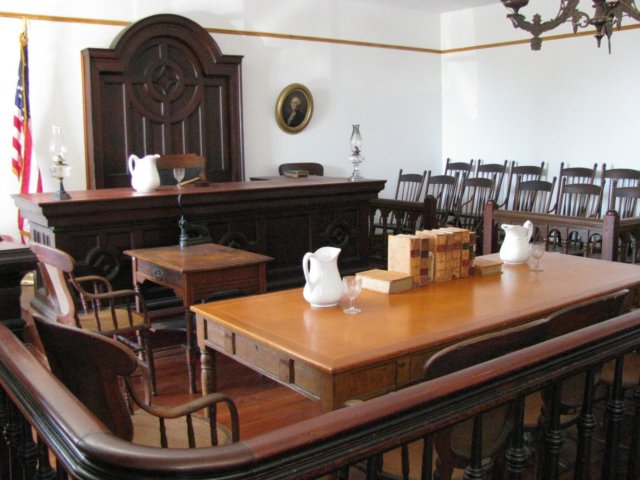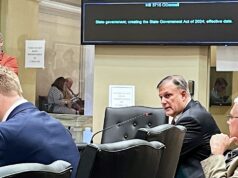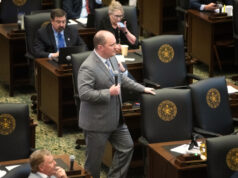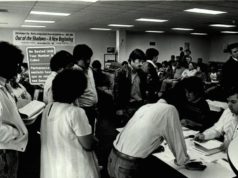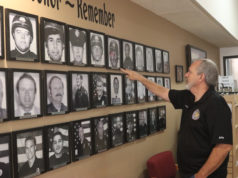From family histories to national narratives, the tales we tell are powerful and potent things. Ironically, we often see stories as something for children, just entertainment or a bedtime activity, but in public discourse we often exclude the stories of our young people. Listening to the life experiences of students across Oklahoma, however, may be the key to facing our most challenging issues.
Criminal justice reform, for example, has historically been a topic for “adults.” But, when the students in Mr. Rhodes’ south Oklahoma City government class learned about the negative impact of the cost of bail, they were motivated to tell their stories in order to advocate for better futures for their siblings and peers.
Our youth
I was reminded of the power of our youth a few weeks ago while listening to Kristyona Shannon, a 12th grade student at U.S. Grant High School in south OKC, who shared her experience living with a parent who was incarcerated.
“My dad is in prison, he got life (…) My mom was pregnant with me when my dad went to prison,” she said. “He was affiliated and had been in trouble. Eventually, it all caught up with him. I talk to him sometimes and I saw him three years ago. It is hard for my family to take me to the prison because many of them are felons themselves. It’s been hard.”
Kristyona’s class recently worked on a Generation Citizen project focused on mass incarceration. They knew that most of the students in their class had personal stories of lan incarcerated loved one, but what they did not realize was just how similar there struggles often are.
“When we started talking about what issues we saw in our community, a lot came out,” said Casey, one of Kristyona’s classmates. Casey said that while many of the Hispanic students wanted to talk about immigration, the class decided to focus on mass incarceration.
The path ahead
Oklahoma has seen a string of Criminal Justice reform efforts in the past three years, including two ballot initiatives brought to a vote that received overwhelming support. Unfortunately, the results have not been entirely what students hoped. Far fewer people are being put in prison, but many are unable to afford the terms of their probation.
“When we did our research, we found out Oklahoma has the highest incarceration rate in the country. And, I see a lot of my kind in prison. You know, black people,” Kristyona said before turning away and blinking back tears.
For black Oklahomans, the rate is five times higher than white Oklahomans. This is devastating for families like Kristyona’s, who lose young men during their prime working age and are forced to make ends meet without them. But the students remain hopeful that a more equitable justice system is attainable. One place they’re looking is the bail system.
Reforming the bail system
Kristyona’s classmates also have personal stories of how fines and fees impact their family’s income. Destiny’s boyfriend spent a week in the county jail because he was not able to pay a $120 fine. Eventually, she was able to come up with the money and get him out. While researching for their project, the students learned this problem was not unique to their families. Fees and fines have risen exponentially in recent years creating a burden for our poor and marginalized populations and costing our state money.
Before the research confirmed the problem, watching countless members of their community struggle disproportionately, led the students to champion bail reform. The bail reform legislation authored by their representative, Mickey Dollens (D-OKC), was never heard by committee. But per his advice, they pivoted to champion SB 282, which would prohibit courts from setting a bail too high for the defendant, causing their pretrial detention. This is still a small step, but it is one in the right direction. Rhodes expressed pride in the courage his students have shown.
“While it is extremely difficult for bills to become laws, and even further to be implemented effectively, the most important thing is each of those students were inspired and eventually could become the legislators we ask for support,” he said.
As the leader of a civics education program where we invite students to learn about the government and systems change, I often hear from skeptics who doubt that students are mature or knowledgeable enough to pose viable solutions. But I believe the kids I spoke to are examples of what is happening in classrooms across the state and beyond. They are learning to tell their own truth, to support their peers during vulnerable times and to find hope and purpose in their actions.









